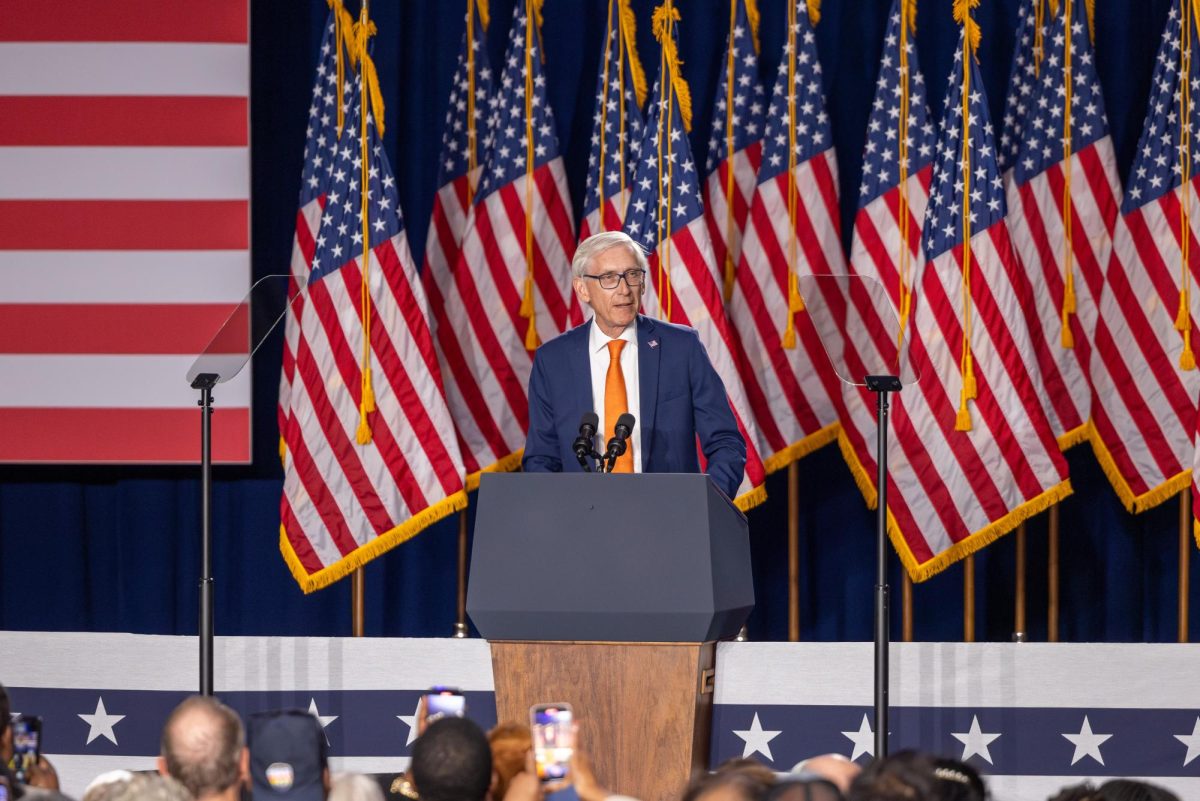With the words, “Let no man think we can deny civil liberties to others and retain it for ourselves,” Consuelo Lopez opened the Constitutional Rights and National Security panel discussion Thursday.
The panel featured UW-Madison law professors Heinz Klug and David Schwartz, women’s rights activist Consuelo Lopez, UW student and Palestinian rights activist Sarah Kaiskow and “The Progressive” writer Matthew Rothschild.
The panel was held to educate students about the current state of civil rights in the United States and on the UW campus.
The speakers were concerned about the perceived deterioration of many American civil liberties, especially the fear faced by minority groups targeted by the national government.
“I can only imagine the fear [minority students] and their families face,” said Lopez.
Kaiskow referred to the FBI questioning of two UW students.
“When I heard they were cracking down on people … I was pretty scared,” Kaiskow said. “There are people being targeted. It’s impossible not to worry.”
Rothschild agreed, and said this was the scariest time of his adult life because America is waging “an immoral war” and civil liberties are endangered.
The current atmosphere was compared to the McCarthy era of the 1950s, in which Sen. Joseph McCarthy, R-Wis., began a witch hunt against suspected Communists and Communist sympathizers.
“This is very redolent of the ’50s,” Rothschild said. “People are losing their jobs; journalists, columnists and cartoonists are losing their jobs. Ashcroft is out of control.”
Klug, a native of South Africa, drew parallels between the current atmosphere and the atmosphere during apartheid. He noted that under apartheid, the amount of time police could hold a person was unlimited.
Klug said laws resembling apartheid are drawing U.S. policies closer to oppressive policies. He said it is an easy process once the transition begins.
“The need for secrecy worries me,” Klug said. “That’s a progression in a very different context, but it does happen.”
The four panelists agreed assertions of power are broader than necessary. They also said congressmen are people who should know better than to vote in favor of repressions of freedom.
Schwartz discussed legal aspects involved in making many of the current laws, as well as his concern about these laws infringing on civil liberties.
“The USA Patriot Act is an example of a Federal Statute,” Schwartz said. “[This act] reopens a door closed since 1975, letting the CIA in on domestic surveillance. [Another method] is the presidential order. This is what established the military tribunals. It applies more broadly than necessary — it’s incredibly broad. The third are the policies of the attorney general. They aren’t really law — they seem to be contrary to law, [but only the Supreme Court can override him]. This includes detentions and the policy to eavesdrop on communications between attorneys and their clients.”
Despite the negative attitude toward government actions, Klug said the government was not completely incorrect in the actions they have taken.
“There is a real attempt here to try and identify and deal with those responsible for the Sept. 11 attacks,” he said.







